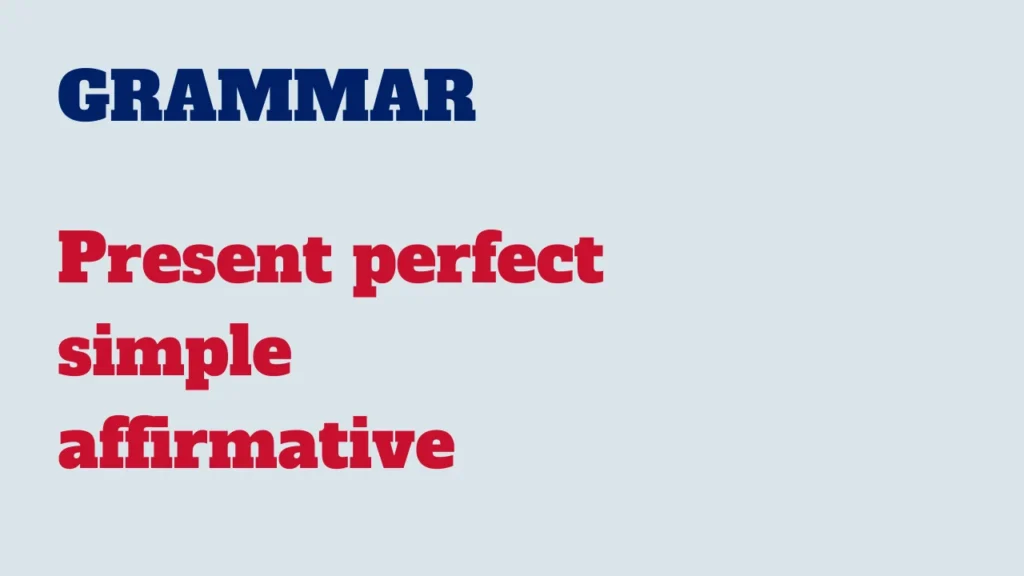The present perfect simple tense is used to express actions or experiences that occurred at an indefinite time in the past but have a connection to the present.

Here’s how to form present perfect simple affirmative sentences:
Structure:
Subject + Have/Has + Past participle of the main verb + Complements or Additional Information
Examples:
I have visited Paris.
She has finished her homework.
We have lived here for five years.
They have seen that movie.
The train has just arrived.
Table: Present perfect simple affirmative
| Subject | Present perfect affirmative | Example |
|---|---|---|
| I | I have + past participle | I have visited several countries. |
| You | You have + past participle | You have finished your homework. |
| He/She/It | He/She/It has + past participle | She has lived in this city for ten years. |
| We | We have + past participle | We have seen that movie before. |
| You (plural) | You have + past participle | You have learned a new skill. |
| They | They have + past participle | They have completed the project on time. |
Usage present perfect simple:
Expressing completed actions:
Used to indicate that an action has been completed at some point before the present.
Example:
I have read that book.
Describing life experiences:
Used to talk about experiences in life up to the present.
Example:
She has traveled to many countries.
Talking about actions with relevance to the present:
Used when the results or effects of an action are still relevant in the present.
Example:
They have known each other since childhood.
Expressing multiple actions:
Used to express the number of times an action has occurred.
Example:
We have watched that movie three times.
Common mistakes to avoid:
Incorrect: I have gone to the gym yesterday.
Correct: I went to the gym yesterday. (Use the past simple tense for a specific time in the past.)
Incorrect: She has ate sushi before.
Correct: She has eaten sushi before. (Use the past participle form of the verb “eat.”)
Understanding how to form and use present perfect simple affirmative sentences allows you to convey completed actions or experiences that have a connection to the present in English. Practice constructing sentences in the present perfect simple tense to enhance your language skills. Happy learning!



